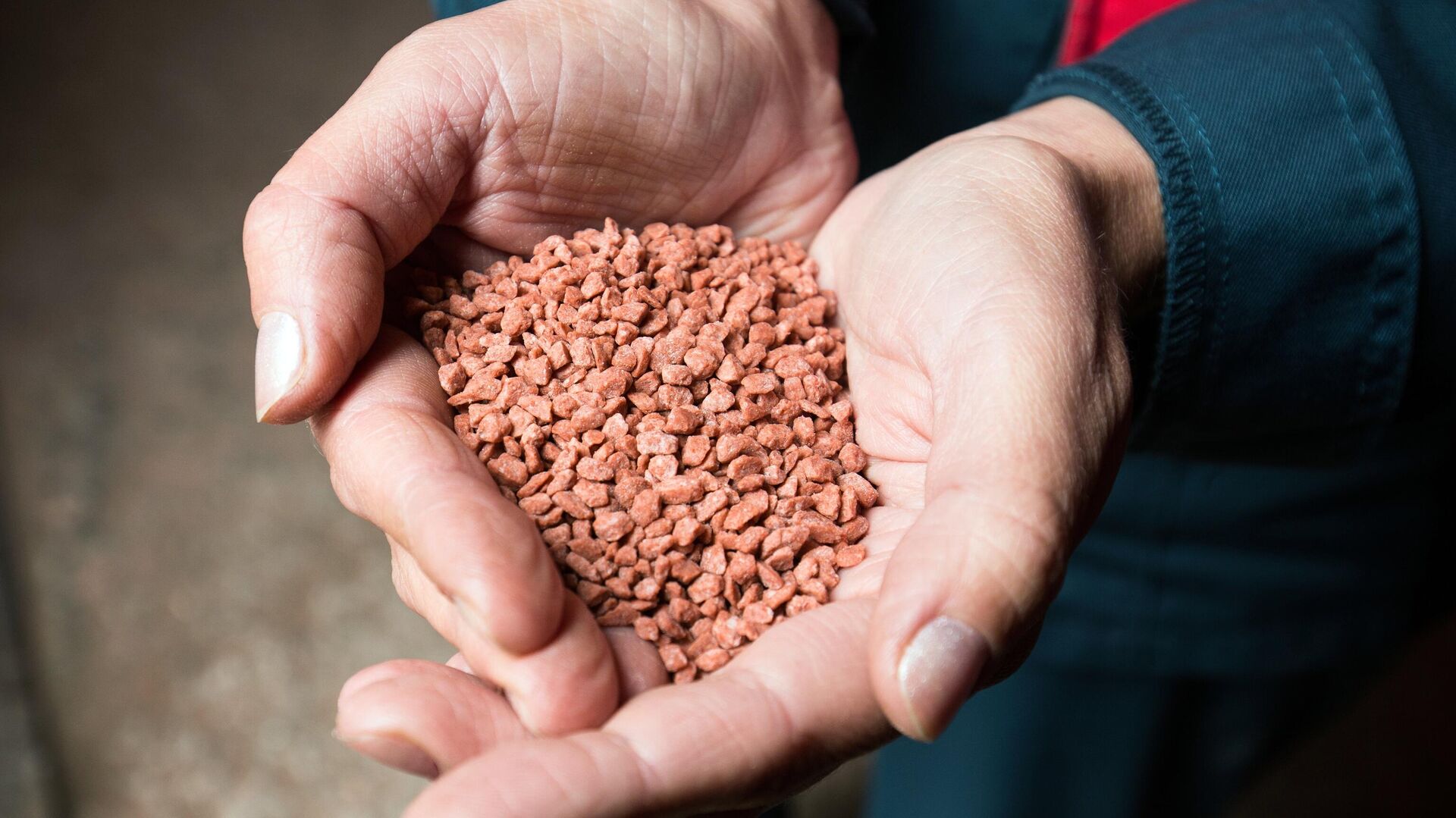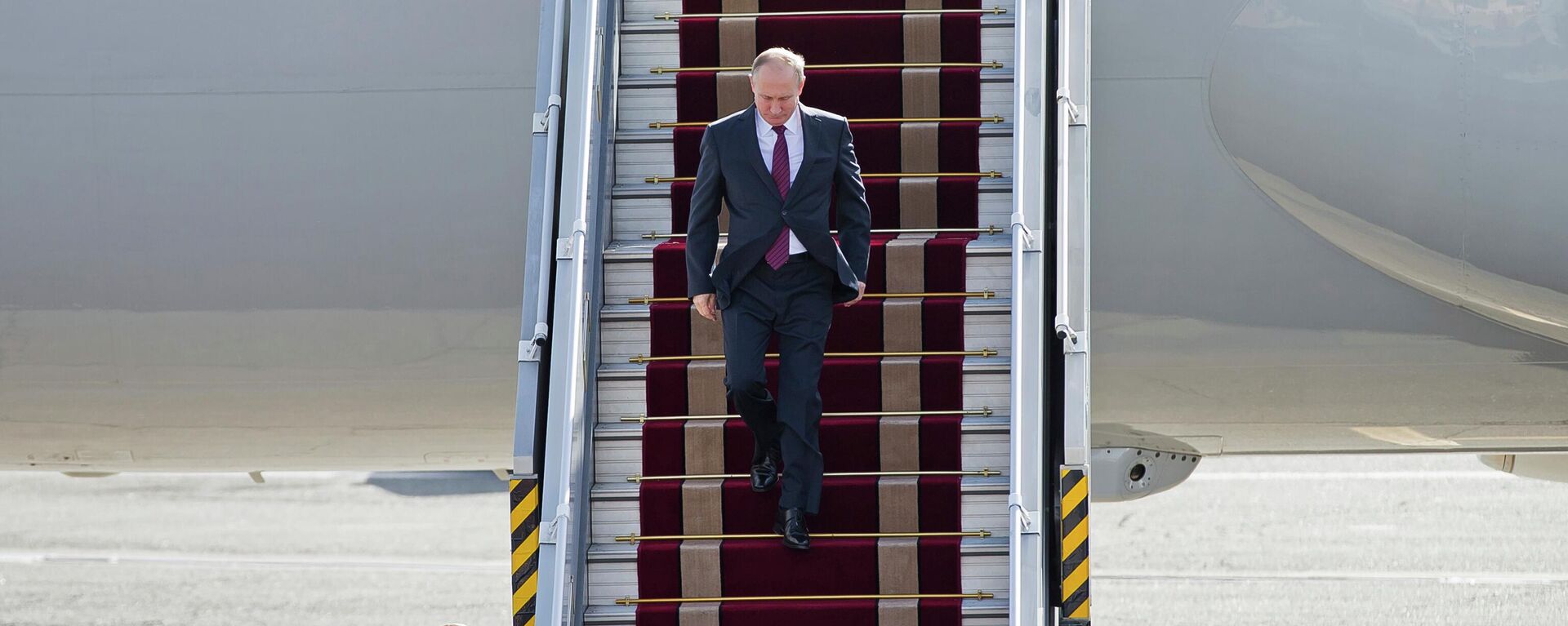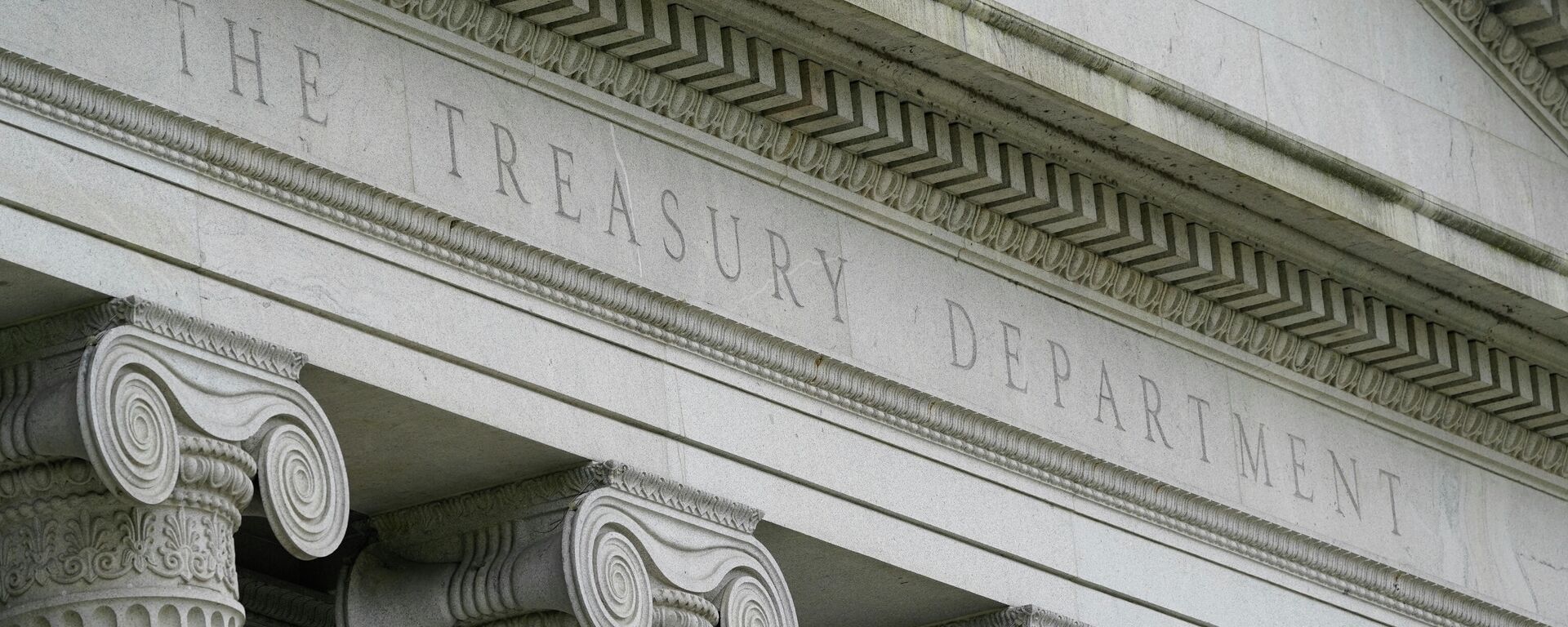https://sputnikglobe.com/20220719/eu-reportedly-set-to-unfreeze-some-russian-bank-funds-for-food-fertilizer-trade-1097509415.html
EU Reportedly Set to Unfreeze Some Russian Bank Funds for Food, Fertilizer Trade
EU Reportedly Set to Unfreeze Some Russian Bank Funds for Food, Fertilizer Trade
Sputnik International
EU foreign policy chief Josep Borrell said last month that the bloc was ready to work on preventing any "unwanted" impact from its sanctions against Russia... 19.07.2022, Sputnik International
2022-07-19T10:26+0000
2022-07-19T10:26+0000
2023-04-12T17:14+0000
world
grain
fertilizer
food
russia
sanctions
military operation
donbass
banks
ukraine
https://cdn1.img.sputnikglobe.com/img/07e6/05/04/1095268060_0:161:3071:1888_1920x0_80_0_0_c263254f39a1414ffa9b75529460d946.jpg
The European Union is set to unfreeze some funds owned by the sanctioned Russian banks in order to allow transactions for food and fertilizer trade, Reuters reported, citing a draft document. Moreover, Brussels reportedly intends to facilitate export of food from Russian ports, which had service suspended in light of Western sanctions.The report comes as Russia expects to export 37 million tons of grain this year. The Russian diplomat explained that elevated and unreasonable insurance tariffs hinder the export of Russian grain and fertilizers, as he addressed "direct" and "indirect" sanctions imposed on the country."If there is a ban on transactions, on financial services, on logistics, a ban on ships entering our ports and on our ships entering foreing ports, in particular, the European Union, then it is a physical and real obstruction of exports," he said.Therefore, the exports of Russian grain and fertilizers is currently unfeasible, including due to "increased, completely unreasonable insurance tariffs," Vershinin pointed out, adding that the matter has been raised with the United Nations officials."The head of the UN Conference on Trade and Development, Rebeca Grynspan, has been to both the United States and Brussels, she continues to work. I know of her intention to visit an EU country, because we are talking about paving the way [for Russian exports]. As long as we talk about food security for everyone, about the threat of famine, we must talk about the supply of grain, fertilizers and raw materials for these fertilizers," Vershinin said.Only in such a manner the issue of food security will be solved in its entirety, he emphasized adding that the issues of enabling the entry of ships, the possibility of loading ships with grain, and the possibility of payment should also be considered.The UN chief, Antonio Guterres, has urged members of the international organization to immediately reintegrate Russian and Ukrainian grain and fertilizers into the global market in order to reduce the risk of famine.Last week, the United States walked back on Russia-related restrictions, authorizing transactions with Moscow related to fertilizers, seeds and food crops. The relaxation came as US Assistant Treasury Secretary for Business Affairs Ramin Toloui admitted that American officials were worried about "overcompliance" with its sanctions, and emphasized that Washington does not want its measures to create obstacles for countries purchasing Russian food and fertilizers.World leaders and international organizations have been sounding the alarm over an imminent and large-scale food crisis due to disruptions caused by Western sanctions on Russia over its special military operation in Ukraine, supply chain disruptions and derailed crop production in one of the largest gain producers in the world. According to the UN Food and Agriculture Organization, in 2021 Russia and Ukraine were among the top global exporters of various types of staple foods, including wheat and corn, while Russia was also a leading exporter of fertilizers. Despite sanctions, Russian President Vladimir Putin stressed that Moscow was ready to fully meet the the demand for fertizilers when it comes to agricultural producers from friendly countries.The European Union has imposed six packages of sanctions against Russia since Moscow recognized the independence of the Donetsk and Lugansk People's Republics and launched a special military operation in Ukraine in order to protect the Donbass population. The sanctions include financial and banking restrictions, among others. The EU said in June it had "immobilized" about $300 billion worth of Russian central bank assets. The bloc's justice commissioner Didier Reynders claimed that a total of 13.8 billion euros ($13.8 billion) worth of assets belonging to sanctioned Russian individuals and entities had been frozen since the military operation began.
https://sputnikglobe.com/20220719/from-economic-ties-to-grain-exports--syrian-crisis-whats-on-the-agenda-of-putins-visit-to-iran-1097448952.html
https://sputnikglobe.com/20220714/us-issues-general-license-authorizing-transactions-with-russia-related-to-fertilizers-seeds-1097323089.html
donbass
ukraine
Sputnik International
feedback@sputniknews.com
+74956456601
MIA „Rosiya Segodnya“
2022
Sputnik International
feedback@sputniknews.com
+74956456601
MIA „Rosiya Segodnya“
News
en_EN
Sputnik International
feedback@sputniknews.com
+74956456601
MIA „Rosiya Segodnya“
Sputnik International
feedback@sputniknews.com
+74956456601
MIA „Rosiya Segodnya“
grain, fertilizer, food, sanctions, military operation, donbass, banks, ukraine, european union (eu)
grain, fertilizer, food, sanctions, military operation, donbass, banks, ukraine, european union (eu)
EU Reportedly Set to Unfreeze Some Russian Bank Funds for Food, Fertilizer Trade
10:26 GMT 19.07.2022 (Updated: 17:14 GMT 12.04.2023) EU foreign policy chief Josep Borrell said last month that the bloc was ready to work on preventing any "unwanted" impact from its sanctions against Russia, such as broken food supply chains.
The European Union is set to unfreeze some funds owned by the sanctioned Russian banks in order to allow transactions for
food and fertilizer trade, Reuters reported, citing a draft document. Moreover, Brussels reportedly intends to facilitate export of food from Russian ports, which had service suspended in light of Western sanctions.
The report comes as Russia expects to export 37 million tons of grain this year.
"We expect that grain exports from Russia will reach 37 million tons in the current agricultural year, and up to 50 million tons next year. On top of that, tens of millions of tons of fertilizer..." Russian Deputy Foreign Minister Sergey Vershinin said on Monday, at a United Nations event dedicated to food security.
The Russian diplomat explained that elevated and unreasonable insurance tariffs hinder the export of Russian grain and fertilizers, as he addressed "direct" and "indirect" sanctions imposed on the country.
"If there is a ban on transactions, on financial services, on logistics, a ban on ships entering our ports and on our ships entering foreing ports, in particular, the European Union, then it is a physical and real obstruction of exports," he said.
Therefore, the exports of Russian grain and fertilizers is currently unfeasible, including due to "increased, completely unreasonable insurance tariffs," Vershinin pointed out, adding that the matter has been raised with the United Nations officials.
"The head of the UN Conference on Trade and Development, Rebeca Grynspan, has been to both the United States and Brussels, she continues to work. I know of her intention to visit an EU country, because we are talking about paving the way [for Russian exports]. As long as we talk about food security for everyone, about the threat of famine, we must talk about the supply of grain, fertilizers and raw materials for these fertilizers," Vershinin said.
Only in such a manner the issue of food security will be solved in its entirety, he emphasized adding that the issues of enabling the entry of ships, the possibility of loading ships with grain, and the possibility of payment should also be considered.
The UN chief, Antonio Guterres, has urged members of the international organization to immediately reintegrate Russian and Ukrainian grain and fertilizers into the global market in order to reduce the risk of famine.
"We face a real risk of multiple famines this year … But we can avoid this catastrophe if we act now," the UN Secretary-General said during his Monday speech at the UN General Assembly via a pre-recorded message.
Last week, the United States walked back on Russia-related restrictions,
authorizing transactions with Moscow related to fertilizers, seeds and food crops. The relaxation came as US Assistant Treasury Secretary for Business Affairs Ramin Toloui admitted that American officials were worried about "overcompliance" with its sanctions, and emphasized that Washington does not want its measures to create obstacles for countries purchasing Russian food and fertilizers.
World leaders and international organizations have been sounding the alarm over an imminent and large-scale food crisis due to disruptions caused by Western sanctions on Russia over its special military operation in Ukraine, supply chain disruptions and derailed crop production in one of the largest gain producers in the world.
According to the UN Food and Agriculture Organization, in 2021 Russia and Ukraine were among the top global exporters of various types of staple foods, including wheat and corn, while Russia was also a leading exporter of fertilizers. Despite sanctions, Russian President Vladimir Putin stressed that Moscow was ready to fully meet the the demand for fertizilers when it comes to agricultural producers from friendly countries.
"I would like to stress that we have no restrictions for fertilizer export. [...] volumes of fertilizer production in Russia are such at present that we have no restrictions for supplies of these products to the international market. The same pertains to foods," Putin said.
The European Union has imposed six packages of sanctions against Russia since Moscow recognized the independence of the Donetsk and Lugansk People's Republics and launched a special military operation in Ukraine in order to protect the Donbass population. The sanctions include financial and banking restrictions, among others. The EU said in June it had "immobilized" about $300 billion worth of Russian central bank assets. The bloc's justice commissioner Didier Reynders claimed that a total of 13.8 billion euros ($13.8 billion) worth of assets belonging to sanctioned Russian individuals and entities had been frozen since the military operation began.






